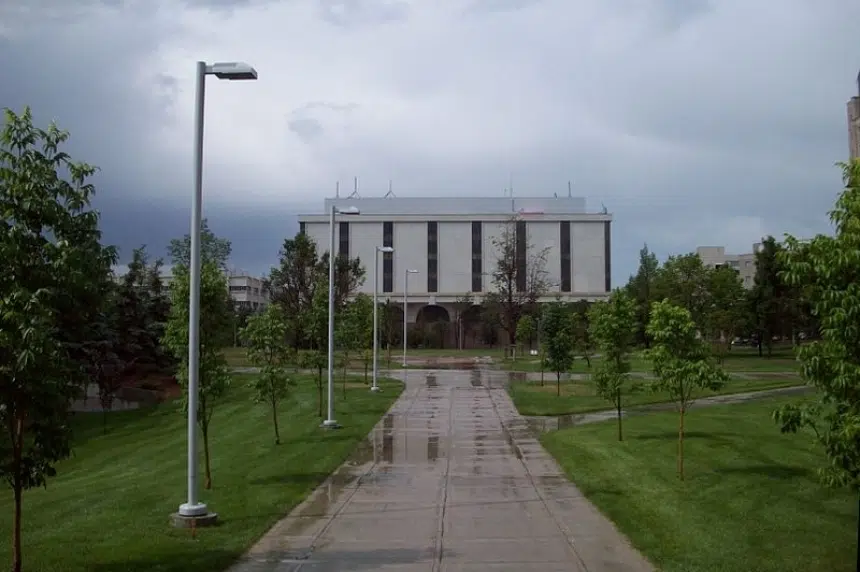Pocketbook issues have been a recurring theme in the election so far, and there’s one other group looking for financial relief — post-secondary students.
The University of Regina Students’ Union (URSU) is staying away from endorsing any parties or candidates, but the group’s president still hopes to raise issues that are important to students.
“If you were to walk out into the Riddell Centre right now and ask almost every student, ‘What is making your life harder today than it should be?,’ almost all of them would tell you that tuition is unaffordable, it’s expensive,” said Victor Oriola.
This fall, domestic students pursuing a bachelor of arts degree at the U of R will pay about $3,800 in tuition and fees for five classes. It will be the 11th straight year that tuition has been increased at the school, something the administration has said was necessary to keep up with higher costs amid static funding.
Students manage the cost by working one or more jobs while studying, taking out student loans or both. Some have also opted to reduce their course load and study part-time instead.
Amanda Yeager, a fifth-year justice studies student, considers herself an exception.
“I’m super lucky and I have family money. I wouldn’t be able to pay for it by myself,” she said, adding that controlling rising tuition costs is one of her election priorities. “Education should be accessible for everyone, not just privileged people.”
URSU is backing its counterparts in B.C., who are petitioning to have federal interest eliminated on student loans, a move the British Columbia Federation of Students says would save the average student $5,000, depending on the prime interest rate, the size of the loan and how long it takes to pay it back.
Oriola described that as incremental change, with the end goal being a society where those who seek education can do so without financial barriers.
Three parties have made commitments regarding post-secondary education during the campaign so far.
The Conservative Party has pledged to increase the federal government’s contribution to Registered Education Savings Plans (RESP) from 20 per cent to 30 per cent for every dollar saved, up to $2,500 annually.
The NDP’s plan is to eliminate interest the federal government charges on student loans and increase non-repayable student grants. The long-term goal would be to make post-secondary education part of the public education system.
In the Green Party’s platform, the federal government would spend $10 billion on post-secondary and trade schools, make tuition free and forgive student debt held by Ottawa.
The Parliamentary Budget Officer has prepared cost estimates for the Conservative’s and the NDP’s proposals; the estimates can be found here.
Oriola said young people need education and training in order to secure good jobs in today’s labour market, and he almost finds it punitive to charge students interest on a loan needed to obtain something they already find unaffordable.
“I wouldn’t say unfair, but it seems like an undue burden that they can’t afford it as is, to then ask them to pay a little bit extra because they’re in need of financial assistance,” he said.
But Oriola said tuition relief wouldn’t solely benefit students.
Money that isn’t spent servicing debt could go toward something that would serve society’s interests, he said, like buying a home or starting a business.
“It just makes sense to allow young people who are graduating to elevate their ability to make an impact (and) untether them from this burden,” he said.
“When you release these young people, people who are full of energy, full of potential, they’re entering the workforce, they’re new and they have something to contribute. Why not let them contribute without having them worry about paying large amounts of debt?”











